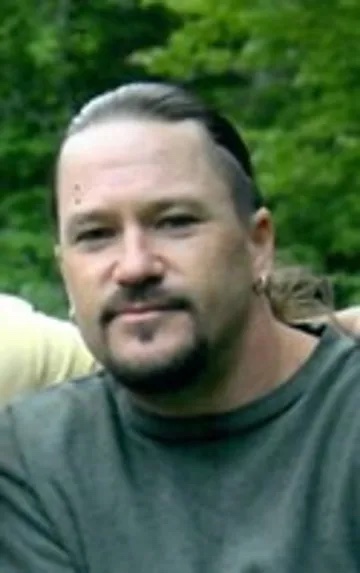By DAMIEN FISHER, InDepthNH.org
DOVER – Dead men may tell no tales, but prosecutors want a dead man to give testimony in the Timothy Verrill double-murder trial. Verrill’s lawyers say calling this key witness from beyond the grave is grounds for a dismissal.
Verrill’s lawyer Meredith Lugo filed a motion to dismiss the case this week after lawyers with the New Hampshire Attorney General’s Office signaled they would call Stephen Clough to give testimony in the upcoming trial, despite the fact Clough died in a motorcycle accident this summer.
Verrill’s first trial was marred by discovery violations by state police so severe they resulted in a mistrial. The state had to disclose three times during the 2019 trial that it had failed to turn over potentially exculpatory evidence to Verrill’s legal team, that is evidence favorable to him.
Now, the state wants to have a prosecutor and a paralegal essentially give a dramatic reading of Clough’s original testimony, even though Clough was at the heart of the discovery violations that derailed the first trial.
Clough took the stand for several hours during the 2019 trial, but Lugo says the defense at the time didn’t have all the facts for its cross examination because the state withheld evidence.
“There were three different incidents of discovery violations uncovered during the trial; undisclosed information regarding primarily Monique Cole, Clough’s ex-girlfriend and the mother of his daughter on October 23 (2019); disclosure that a pre-polygraph video-taped interview with Clough had been conducted in August 2017, at the conclusion of which the examiner determined it would not be appropriate to conduct a polygraph examination on October 30 (2019) after trial ended for the day; and additional information totaling approximately 500 pages and 39 media disks after trial,” Lugo wrote.
According to the testimony the state kept hidden, Clough’s August 2017 lie detector test was scuttled because he had “guilty knowledge” about the murders, Lugo wrote. In fact, the evidence the state was late in handing over indicates Clough thought police considered him a suspect in the brutal slayings, and repeatedly sought a lie detector test to clear himself.
“I can’t believe this is going on again where I’m being questioned like I’m not believed,” Clough said according to the transcript of the pre-polygraph interview.
It was also learned after the mistrial that Clough was an informant for investigators with the Drug Enforcement Administration. Clough was giving information to DEA agents investigating the drug trafficking that was connected to the murders.
Further evidence came out showing that Clough was in contact with Michael “Spider” Ditoria around the time of the murders. Of all the people interviewed by investigators, only Clough and Ditoria were asked to submit to polygraph exams.
On top of that, police kept information about Clough’s mental state from the defense team. Clough seemingly suffered from audio and visual hallucinations as well as paranoia, and had texted New Hampshire State Police Lt. Brian Strong disconcerting pleas about these delusions. In text messages the defense did not see before the trial started, Strong told Clough there was nothing in the recordings Clough kept.
“I have been to (your) house and listened to (your) recordings there is nothing going on, u r the only person hearing the things u r hearing, if it was actually happening others would be hearing what u r hearing,” Strong texted to Clough.
After another plea from Clough, Strong told the star witness to get treatment.
“Steve, I am not stopping by. I have talked w your father and brother, u need help. U r the only person who sees and hears things,” Strong texted.
Since the defense team didn’t know about Clough’s perception of himself as a suspect, the canceled polygraph, his connection to Ditoria, and the reported delusions, none of it was part of the cross examination at the first trial. Simply reading the transcript of the 2019 testimony would be a replay of the mistrial.
Lugo says Clough being a witness in the new trial set for November is enough of a Constitutional violation to warrant dismissing the charges. Verrill cannot confront a key witness, and his team cannot properly cross examine Clough in light of all the evidence.
More than that, though, Lugo said the evidence about Clough that came out after the trial is enough to justify dismissing the case. When a mistrial was declared Verrill’s lawyers pushed for a dismissal, but the court ruled a new trial was warranted given Clough’ compelling testimony.
In the event Clough’s testimony is used in the new trial, Lugo said the defense needs to be allowed to bring in the hidden evidence about Clough that has since been uncovered. She also wants the state to play a video of Clough’s testimony for the jury rather than have two lawyers read the transcript.
Verrill is charged in the stabbing and beating deaths of Christine Sullivan, 48, and Jenna Pellegrini, 32, at the home of Dean Smoronk in Farmington, where their bodies were found Jan. 27, 2017. Sullivan lived with Smoronk and Pellegrini was a houseguest, according to court records. Verrill also allegedly tried to hide their bodies under the home’s porch and attempted to hide or destroy other evidence.
Verrill and Smoronk were members of the Mountain Men Motorcycle Club, an organization known to deal drugs, according to court records.





